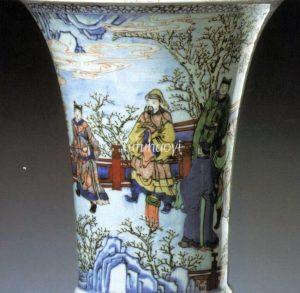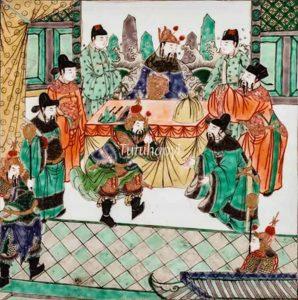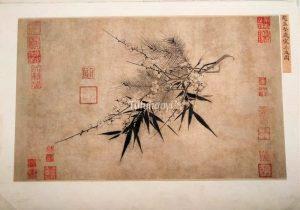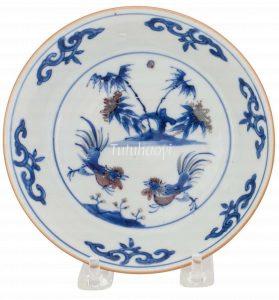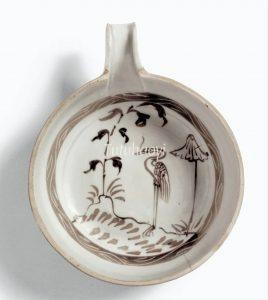Showing Results Containing
Evidently, Zhao Kuangyin (赵匡胤 927–976), Emperor Taizu of the Song dynasty (宋太祖), often paid unofficial surprise visits to his courtiers. As a result, his ministers did not dare to change their official attire into casual wear even when they returned home from court. They had to be ready for imperial visits any time and d...
According to Confucian ethics, a man’s ambition and pride need to be balanced by humility.
General Lian Po (廉颇, active 298–236 BC) and Minister Lin Xiangru (蔺相如, active ca. 279 BC) were colleagues in the government of the state of Zhao. When Lin Xiangru received a higher appointment than Lian Po’s, Lian Po felt it...
Pines, bamboos, and plum blossoms (prunus) form the ‘Three Friends in Winter’ (岁寒三友) motif. The early blossoming plum is the harbinger of spring; the
‘Shuang 双’ is the Chinese word for ‘two’. ‘Xiong 雄’ in ‘Xiong ji 雄鸡’ in the Chinese name for ‘rooster’ makes a pun on ‘xiong 雄’ for ‘hero’. Thus, the image of two roosters in confrontation is meant to represent two competent officials competing with their intelligence for eminent gover...
An egret and lotus flowers (莲花) are pictured in combination to infer ‘Yi Lu Qing Lian’, which means ‘You are an honest and uncorrupted official in your ...
